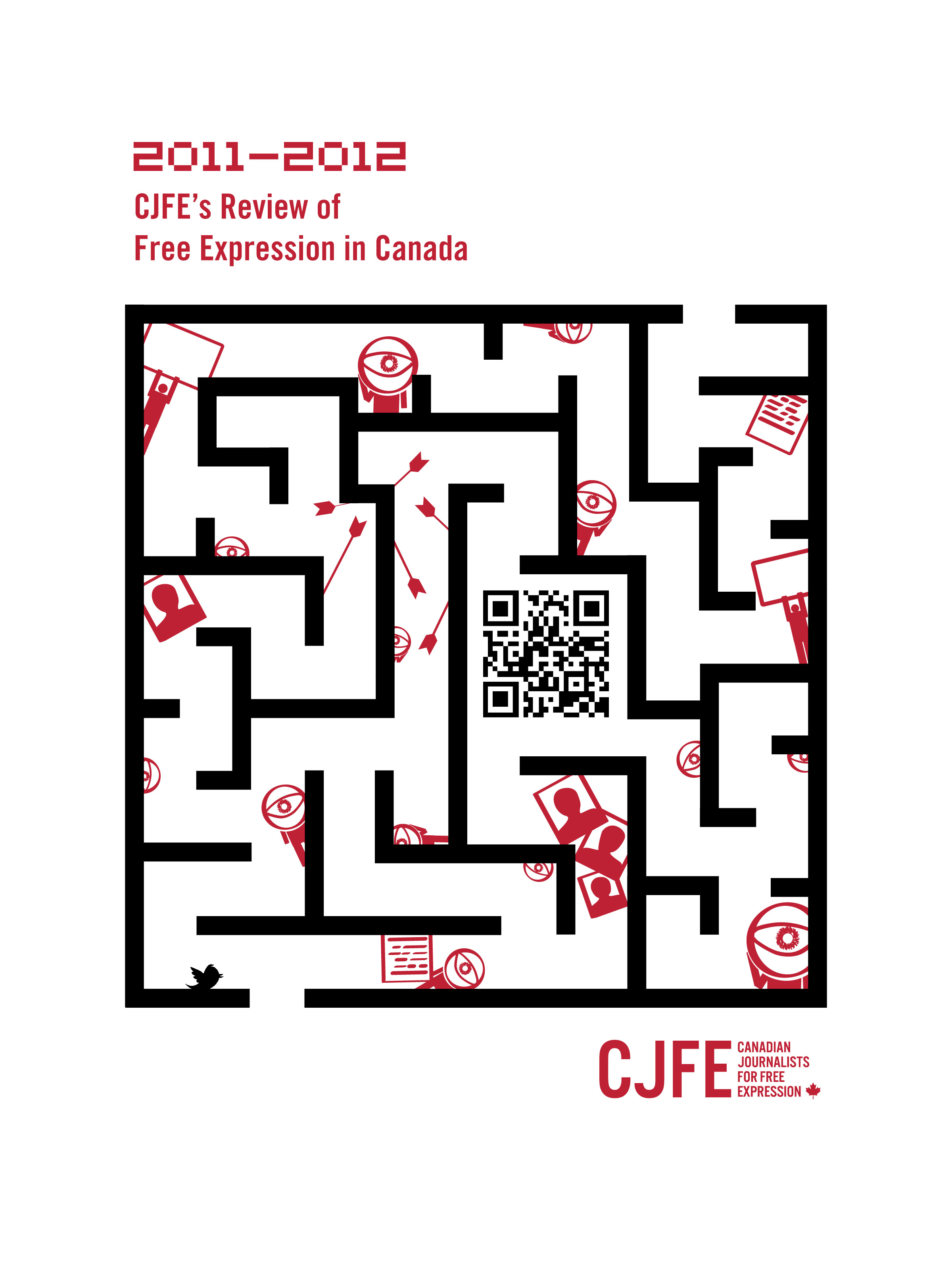Examining issues including privacy and anonymity on the Internet, cyber surveillance, whistleblowers, access to information, and collaborative journalism, CJFE's third annual Review of Free Expression in Canada provides an overview of issues facing Canadians from coast to coast.
(CJFE/IFEX) – May 2, 2012, Toronto, ON – For the third straight year, the federal government received failing grades from Canadian Journalists for Free Expression in a report card on freedom of expression in Canada.
The report card, included in the annual Review of Free Expression in Canada, highlights how access to information at the federal level is marred by secrecy and delays – the federal government continues its stonewalling tactics to deter journalists, muzzles scientists from speaking to media about their research, and is failing to do its part to protect our digital rights.
Released to coincide with World Press Freedom Day on May 3, 2012, the Review also examines such issues as our relationship with the Internet, media ownership and wiretapping.
“A year into the Harper majority we have yet to see changes to federal government behaviour regarding transparency and reform to access to information,” said Arnold Amber, CJFE President. “Freedom of expression is continually stifled by restrictions. Our internet freedom in particularly is in jeopardy, as proposed legislation intrudes on our privacy and threatens the free flow of information.”
Report card grades include:
Access to information and the federal government: F
• Bumped up from an F- last year due to a very slight increase in completed federal ATI requests and a slight decrease in the number of requests denied for security reasons, the government’s performance is still unacceptable. Canada was ranked 40th out of 89 countries in last year’s Global Right to Information Rating, the ATI process is still marred by delays, denials, fees and redactions, and the number of ATI requests denied on security grounds has tripled since 2002–2003.
Federal scientists’ freedom of expression: F
• Canada’s control over the communications of federally funded scientists is alarming. Climate change science coverage in the media has plummeted by 80 per cent since 2007, drastically reducing information available to Canadians. Some scientists have been denied permission to talk to the media about their research even after it was published in peer-reviewed journals.
The Supreme Court: B+
• The Supreme Court of Canada ruled that emergency wiretapping by police without a warrant is unconstitutional and upheld a lower court’s ruling that hyperlinking is not the same as publication in alleged cases of libel. Although both decisions were welcomed by free expression advocates, the Supreme Court’s decision barring access to records held in cabinet ministers’ offices brought down its overall grade.
Grades were also assigned to Media Ownership, Federal Protection of Digital Rights and Internet Access, and the Canadian Public.
Other topics covered in this year’s Review include:
• an overview of the global cyber threat landscape
• the debate over Internet anonymity
• media ownership in Canada
• obstacles faced by Canadian whistleblowers
• online collaborative journalism
• cross-Canada free expression reports
• notable free-expression-related court decisions from the past year



